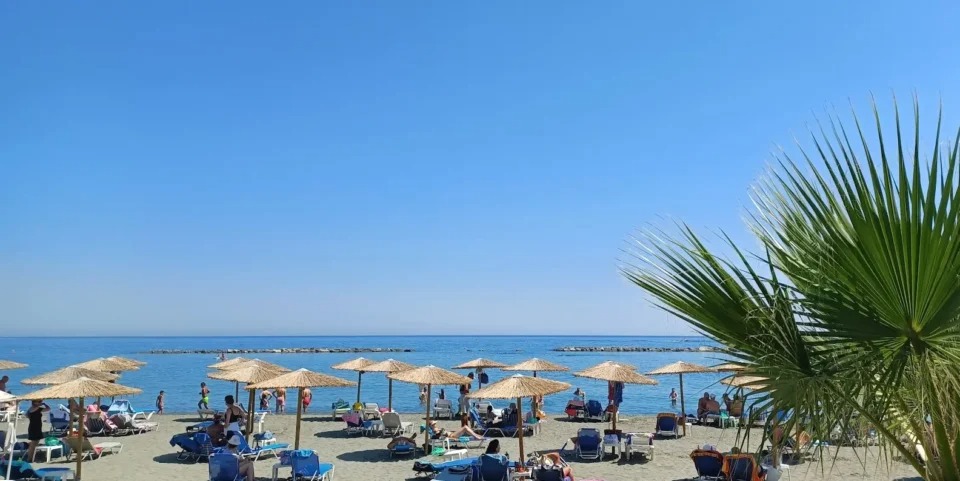06.08.2022
Cyprus Hotel Managers Association President Christos Angelides said on Friday that hotel occupancy rates in the Famagusta area are expected to reach 85-90% in August.
“We are going through a period where more bookings were expected in the Famagusta area because almost all of Europe is on holiday at this time,” Angelides said. However, in the last one to two weeks there has also been an increase in hotel bookings from the local market, as it seems that several of our compatriots have remained in Cyprus due to the chaos prevailing at the airports of several European countries, rising prices and the problem of another wave of Covid-19, ” he added.
Despite the area’s aforementioned occupancy rate, which was described as satisfactory, Angelides warned that the months after August would not be as good for the hotel industry.
“It appears that despite our expectations, hotel bookings will be reduced during the autumn months due to European fears about inflation, high costs, as well as a sharp increase in energy prices, which are expected to rise even more, mainly in Germany and Central Europe,” Angelides explained.
Another thing that is affecting the flow of tourists, he continued, is the increase in interest rates, noting that the financial plight of many people around the world is negatively affecting travel, especially in Europe. In addition, Angelidis also reported that “there are about 15 hotels in the Famagusta area that have remained closed, as they are 100% trading tourists from Russia.”
Regarding the markets from which the Famagusta area attracts tourists, Angelides said that “at the beginning of the tourist season, places were booked from several countries, from which we did not have many visitors in the past.”
However, with the continuation of the war in Ukraine, this came to naught , as tourists from neighboring countries, namely Poland and Romania, also suffered.
“It looks like we will not get what we expected from these markets, given that the war is next to them,” Angelides said.
Angelides stressed that before 2000, 50 per cent of non-British tourists came from the Nordic countries, Switzerland, Germany, Austria, Poland and the Netherlands.
This was followed by a massive increase in the number of tourists from Russia and Ukraine, which at that time was a new phenomenon.
“In essence, what we are doing today is a new approach to the traditional markets of Cyprus,” Angelides said.
He also expressed his satisfaction that “in the tourism sector, the time has come to stop measuring only the number of visitors, but also the quality of tourists arriving on our island, through the prices charged by hotels.”
“Arriving is one thing, staying overnight is another, and what tourists pay and leave at the end of the day is also a separate metric,” he added, noting that “it is important to see what each tourist leaves in the country, and not how much comes.”
In addition, Angelidis said that “there are many sectors and officials who like to measure exclusively the number of tourists arriving on the island, since some of them are related to transport, but there are also restaurants and entertainment in the equation.”
“The only way to improve Cyprus and its tourism product is the arrival of paying customers who are also demanding,” he added.
Regarding the issue of rethinking the tourism product of Cyprus with alternative forms of tourism promoted by the Deputy Ministry of Tourism, Angelides said the association is more than in agreement with this approach.
“It is necessary to diversify and modernize the general product called Cyprus, and not a specific sector, so that tourists can have multiple experiences from different regions,” he concluded.
















